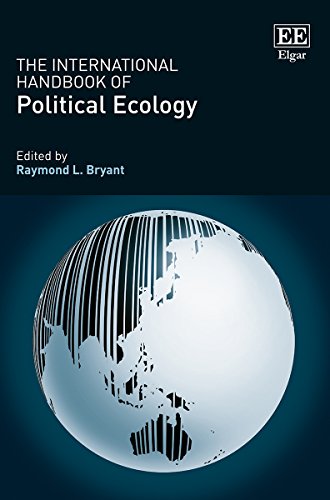

Most ebook files are in PDF format, so you can easily read them using various software such as Foxit Reader or directly on the Google Chrome browser.
Some ebook files are released by publishers in other formats such as .awz, .mobi, .epub, .fb2, etc. You may need to install specific software to read these formats on mobile/PC, such as Calibre.
Please read the tutorial at this link: https://ebookbell.com/faq
We offer FREE conversion to the popular formats you request; however, this may take some time. Therefore, right after payment, please email us, and we will try to provide the service as quickly as possible.
For some exceptional file formats or broken links (if any), please refrain from opening any disputes. Instead, email us first, and we will try to assist within a maximum of 6 hours.
EbookBell Team

4.8
34 reviews'The International Handbook of Political Ecology is an impressive and scholarly collection. Its list of authors reads like a who's who of political ecology, and its theoretical and geographical scope (in both empirical focus and the origin of authors) provides a powerful synthesis of where political ecology has come from, what it offers to scholars, policy makers and activists, and why it is important.'
- Bill Adams, University of Cambridge, UK
The International Handbook of Political Ecology features chapters by leading scholars from around the world in a unique collection exploring the multi-disciplinary field of political ecology. This landmark volume canvasses key developments, topics, issues, debates and concepts showcasing how political ecologists today address pressing social and environmental concerns.
Introductory chapters provide an overview of political ecology and the Handbook. Remaining chapters examine five broad themes: issues and approaches; governance and power; knowledge and discourse; method and scale; and connections and transformations. The authors focus on an intrinsically international endeavour, considering both the topic and source of research, and integrate the approaches, debates, concepts and methods that define the field internationally. A combination of general reflection and case study research demonstrates both political ecology's place in wider social science debates and trends, as well as how its concerns relate to diverse empirical problems and settings.
Across diverse topics and perspectives, these chapters amount to a wide-ranging survey of current research, making the International Handbook an indispensable reference for scholars and students in political ecology.
Contributors: A. Acharya, B. Agarwal, H. Alimonda, A. Asiyanbi, L. Baker, S. Barca, S. Batterbury, P. Blaikie, E. Bravo, R.L. Bryant, B. Büscher, G. Cederlöf, D. Chartier, C.A. Claus, L. Cortesi, A. Doolittle, M.R. Dove, W. Dressler, R. Fletcher, T. Forsyth, T.Á.M. Freitas, D. Gautier, B. Hautdidier, A. Hayes-Conroy, J. Hayes-Conroy, H. Healy, C. Hebdon, L. Jarosz, S. Joshi, G. Kallis, A.H. Kimura, T. Kizos, C.A. Kull, P. Le Billon, S. Lee, E. Leff, A. Loftus, J. Martinez-Alier, B.R. Middleton, M. Moreano, A.C. Salomão Mozine, J. Muldavin, S. Nair, H. Neo, R.P. Neumann, C. Noe, G.G. Núñez, Á. Paniagua, N.L. Peluso, C.P. Pow, M. Ramutsindel